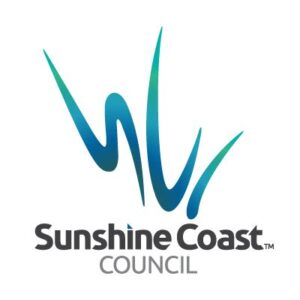Our journey
What Council has achieved in energy efficiency, renewable energy, sustainable transport and sustainability
The Sunshine Coast is widely acknowledged as a highly desirable place to live, work and play with abundant natural resources and a unique lifestyle. The Sunshine Coast local government area covers an area of approximately 2,200 square kilometres and has a population of 303,400 residents. Annual population growth, which is expected to continue, has led to significant urban development and supporting infrastructure. Sunshine Coast Council’s vision is to be Australia’s most sustainable region – healthy. Smart. Creative. We have been striving to achieve this vision and to maintain a healthy environment and liveable Sunshine Coast through:
- The 15 MW Sunshine Coast Solar Farm which has already generated around 8500 megawatts since being switched on in July 2017. In November 2017 the solar farm offset 113% of council’s electricity consumption for the month. The Sunshine Coast Solar Farm project recently won the Planning Institute of Australia Wendy Chadwick Encouragement Award for being innovative and showing the greatest promise of achieving the vision of excellence in Queensland.
- Implementation of the Smart Cities Program to reduce greenhouse gas emissions, traffic congestion and energy use. The Smart Centre and Living Lab, located in Caloundra, showcases real-time results and examples of the smart city technology currently being tested. Technologies range from parking apps and free high speed public Wi-Fi to transport information and environmental water sensors providing data in real time.
- Sunshine Coast Airport was the first airport in Australia to achieve Level 3+ Carbon Neutral accreditation through the International Airport Carbon Accreditation Program.
- The sustainably designed Mary Cairncross Scenic Reserve Rainforest Discovery Centre was opened in early 2017 to enhance and facilitate community and visitors’ appreciation of our natural environment.
- Over 150 kW of solar PV on council buildings and facilities, various energy efficiency measures (including LED lighting, Variable Speed drives on pool pumps, energy efficient heat pumps and filtration systems at aquatic centres, solar pool heating, solar tube skylights, sensor lighting, insulation and heating, ventilation, air conditioning upgrades) as well as demand management projects including smart meters and building management systems.
- Fuel reduction projects, including a real time GPS system to ensure the shortest route is travelled, fleet streamlining to reduce vehicle numbers and fuel consumption as well as two electric vehicles in council’s fleet. These projects have reduced fuel consumption by 7.5% since 2014/15.
- Implementation of landfill gas flaring, recycling and diversion of waste from landfill. Since 2014/15, over 100,000 tonnes of methane has been flared. The current waste diversion rate is about 33% with programs in place to further improve waste diversion from landfill in the future.
- Several sustainability programs and events for community including Living Smart, World Environment Day, Earth Hour and TravelSmart.
- 58% council staff participation rates in a variety of organisational sustainability programs and events about energy, waste and transport.
Sunshine Coast Council has reduced its greenhouse gas emissions by 22,960 tonnes since 2014/15. Monitoring progress of greenhouse gas emissions and environmental sustainability results is delivered transparently through annual organisational environmental sustainability reporting.
What we hope to achieve in energy efficiency, renewable energy, sustainable transport and sustainability
Sunshine Coast Council has recently endorsed the Environment and Liveability Strategy 2017which contains a number of targets to drive future achievements in energy efficiency, renewable energy, sustainable transport and broader sustainability. Targets to be achieved include:
- Increase the number of developments which are verified as achieving a minimum Green Star Rating of 5 and/or NABERS rating of 5, or equivalent nationally recognised sustainability rating, by 2041.
- Sunshine Coast Council is a zero-net emissions organisation and the community is low carbon by 2041.
- Increase community understanding and adoption of sustainable living practices by 2041.
To achieve these targets, Sunshine Coast Council will be implementing actions such as installing Australia’s first high-tech, automated waste collection system for a CBD at the new Maroochydore City Centre. Rather than using wheelie bins and garbage trucks in the city centre, waste will be transported through underground vacuum pipes located beneath the city centre.
Why we joined the Cities Power Partnership program
Sunshine Coast Council has joined the Cities Power Partnership to improve sustainability outcomes for the community and the organisation and to showcase achievements. We look forward to working closely with other councils to share and grow the collective knowledge within our respective communities and across local government more broadly.
